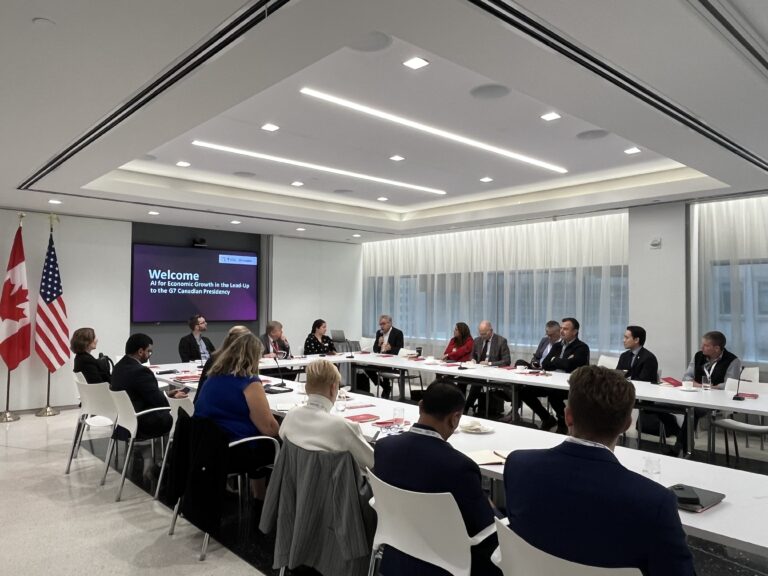Blog /
Net-Zero Executive Summit: What We Heard
Net-Zero Executive Summit: What We Heard
We kicked off the third event in our 2023 Executive Summit Series on Tuesday, March 28 with an in-depth discussion on the Canada’s path to net-zero at the Rideau Club in Ottawa.
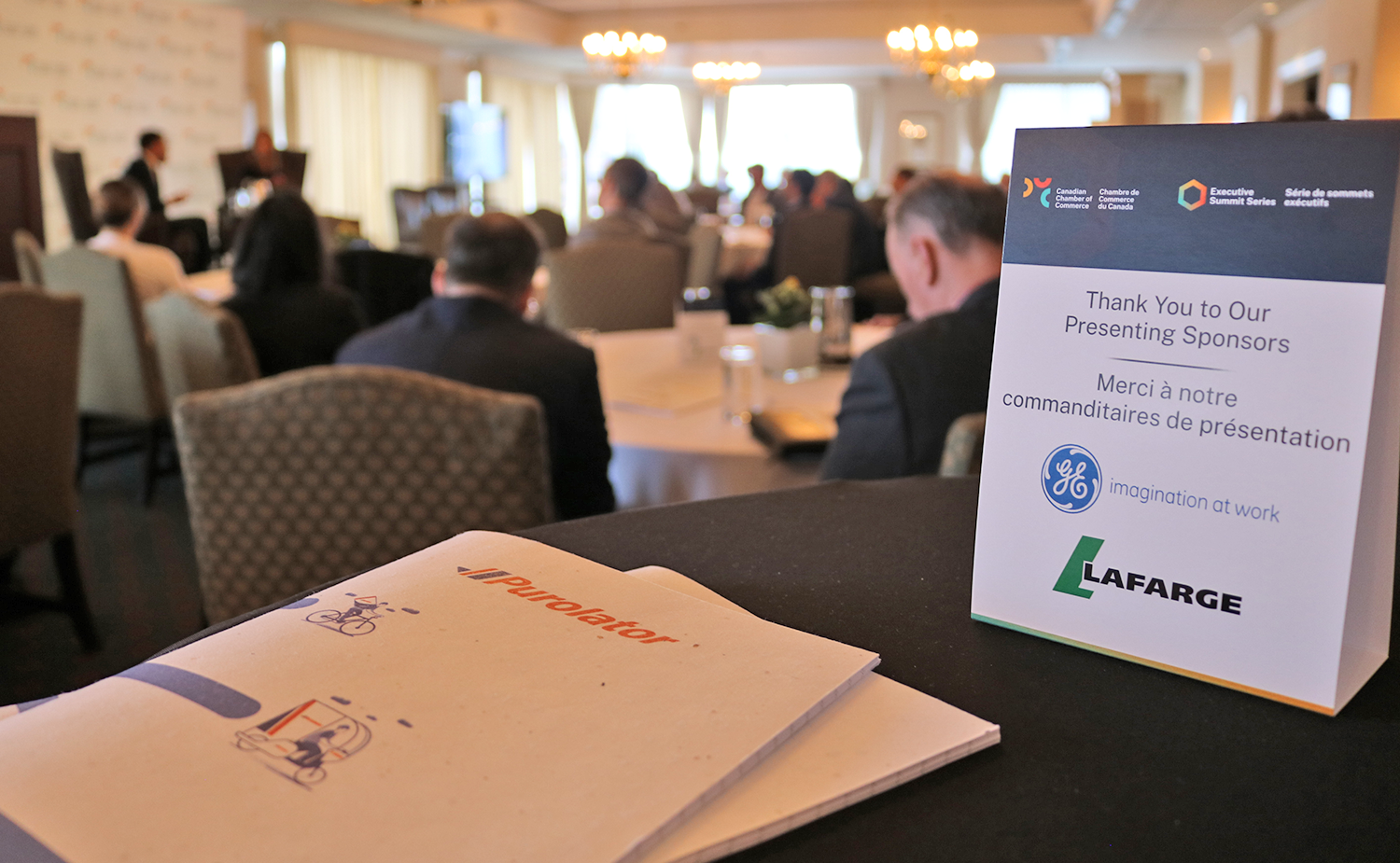
We kicked off the third event in our 2023 Executive Summit Series on Tuesday, March 28 with an in-depth discussion on the Canada’s path to net-zero at the Rideau Club in Ottawa.
Before the afternoon Summit took place, our Net-Zero Council met in the morning. The Council meets monthly to support research and advocacy designed to advance Canada’s pathway to net-zero while ensuring that steps are taken to manage the cumulative cost and regulatory impacts on competitiveness.
Our Net-Zero Council is dedicated to advancing business leadership on climate change and aims to inform government policy through numerous channels, including through the federal government’s Net-Zero Advisory Body.
In the afternoon, our Executive Summit guests examined Canada’s 2030 Emissions Reductions Plan one year after release and provided sector perspectives on Canada’s path to net-zero.
Read on for the Summit’s key takeaways!
Infrastructure drives our economy and the kind of society we are – it matters.
Ehren Cory, CEO, Canada Infrastructure Bank
Keynote speaker: Ehren Cory, CEO, Canada Infrastructure Bank
Key Takeaways:
- Infrastructure is essential to meeting our climate change goals – it is the “stuff” that shapes our economies and societies.
- We are a nation built on infrastructure. For example, digital infrastructure.
- Our deficit is a problem we start with that gets multiplied when we try to transition to net-zero.
- We need to build clean energy systems and new transmissions, but there is a dual challenge here of meeting the back log we have, doing it green, while building all the new infrastructure needed.
- Ehren Cory discussed that he gives Canada a passing mark, but not a ten out of ten when it comes to how seriously the country is implementing plans to reach our infrastructure goals. He says we have the ability to meet our goals quickly, but we need to break through barriers such as lack of funding.
- Canada is blessed with natural resources, critical minerals in our ground and a skilled workforce that can be a part of these critical supply chains around the world. There is a ton of opportunity here for Canada to be a leader in these spaces.
- Although for good reason, Canada sometimes struggles in our ability to manage levels of government and approval processes. There tends to be a chicken and egg scenario with government.
- CIB’s goal is to close the infrastructure deficit and to do this, we need to increase collaboration. This is the only way we’re going to get to where we want to go.
- Ehren Cory discussed that in terms of the federal budget coming out later in the day, he is looking forward to seeing how government strategically thinks about using all tools we have, such as tax credit programs, to achieve a net-zero future. He says that the budget is one marker in the journey, but what we must figure out how to align more of these things to work faster together.
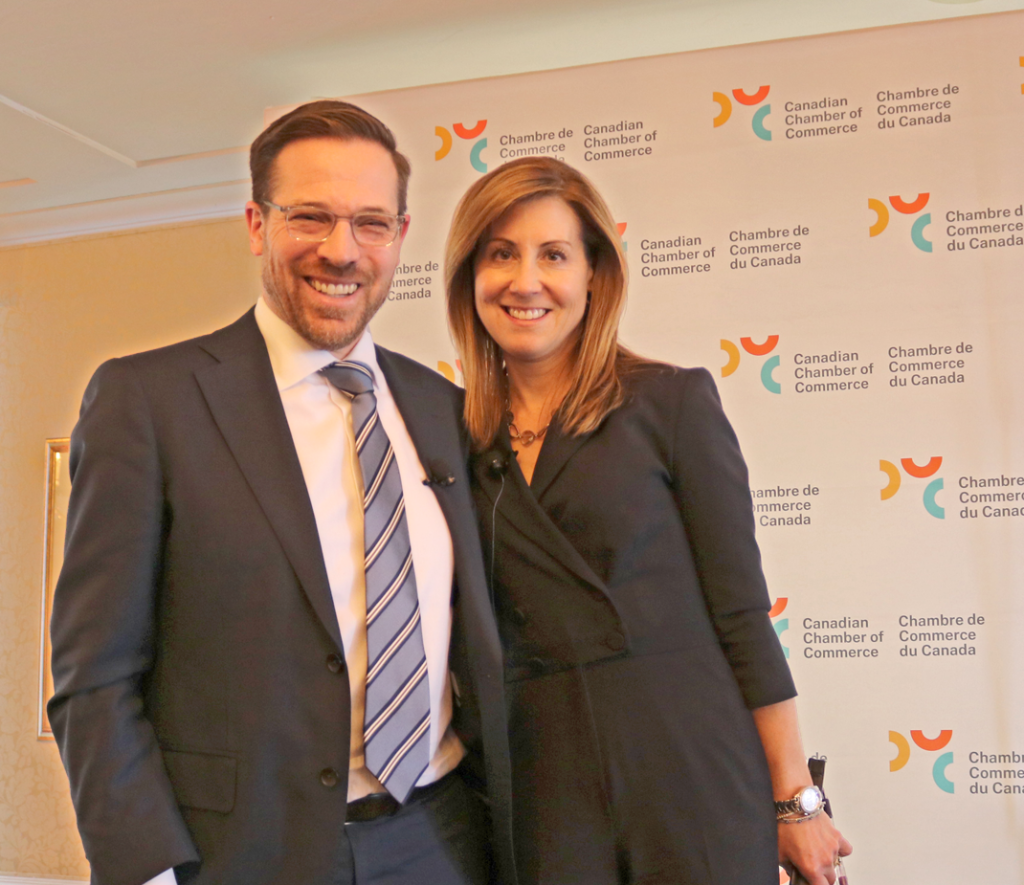
Heather Chalmers, President and CEO, GE Canada (Right)
Moderator
Sam Boutziouvis, VP, Government Relations and Multilateral Institutions, SNC-Lavalin Group Inc.
Panelists
Robert Cumming, Vice President, Sustainability and Public Affairs, Lafarge Canada Inc.
Rebecca Francolini, Senior Environmental Strategist, Mackenzie Investments
Shelley Gilberg, National ESG Markets Leader and Canadian Platforms Leader, PwC Canada
Etienne Rainville, Director of Federal Government Relations, Clean Prosperity
Key Takeaways:
- The panel was initially asked how things are going for Canada one year into its 2030 Emissions Reductions Plan (ERP).
- Panelists agreed that Canada has ambitious and aggressive goals for 2030.
- Some highlighted that Canada is not on track at all to meet our 2030 goals – that we have locked up a lot of capital, and that we are not starting in the same place as other countries.
- Other panelists discussed that the ERP and 2030 goal is similar to a mid-term exam. You don’t need to pass it, you just need to try hard and look ahead to what the next objective is, which will be 2050.
- Canada needs to understand the incentives in the oil and gas space. We want to fuel economic growth in Canada.
- Panelists noted that the U.S. Inflation reduction Act (IRA) has unintended consequences on Canada.
- Rebecca Francolini highlighted the need for a ‘made in Canada’ approach with disclosure and transparency being a big part of this.
- Money and people are how we are going to succeed in the skills transition that is needed to achieve net-zero. As more jobs open for the clean energy sector, we also need to look at the risk involved, which is a big gap seen in policy. We need to think of who is most at risk during this transition.
- Since this is a complex issue, we need to consider the infrastructure here. It seems as though everyone is currently working on emissions reductions but not thinking ahead to the workers’ future as we transition.
- To help with this, it is crucial to get more people into skilled trades. Because the oil sand jobs are not going away for quite some time, we need to remove barriers and prioritize immigration.
- In a global context, Canada is one of the largest emitters of greenhouse gasses. Knowing this, Canada plays a large role in helping support international transitions to clean energy. We play a role that is different than just for ourselves.
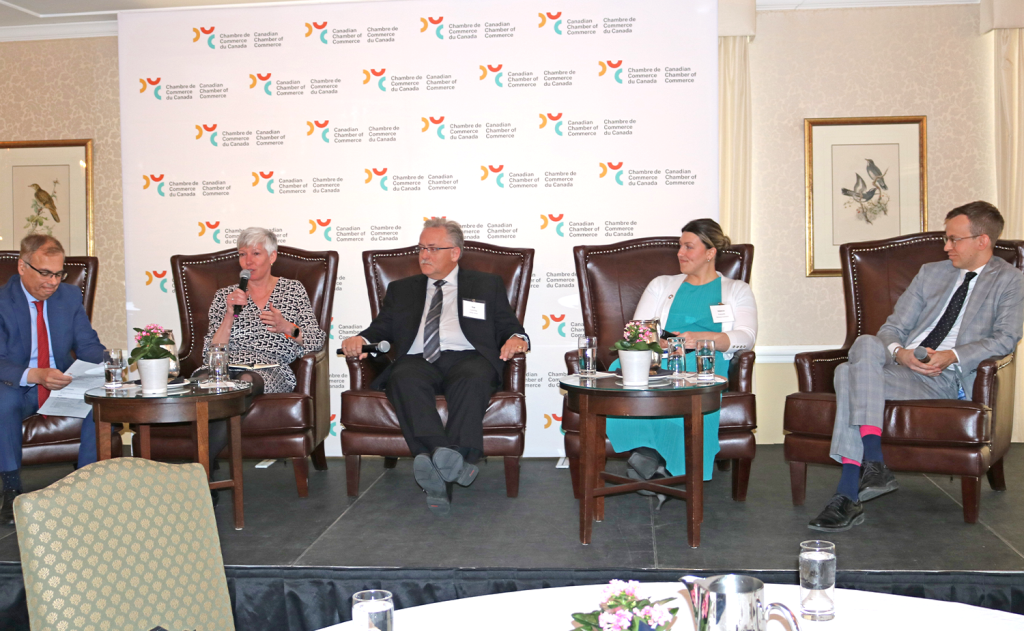
Sam Boutziouvis, SNC-Lavalin Group Inc.
Shelley Gilberg, PwC Canada
Robert Cumming, Lafarge Canada
Rebecca Francolini, Mackenzie Investments
Etienne Rainville, Clean Prosperity
Be sure to check out the upcoming sessions as part of our #ExecutiveSummitSeries.
To read more about the advocacy work our Net-Zero Council is doing to advance Canada’s path to net-zero, click here.
Thank You to Our Net-Zero Event Sponsors

Thank You to Our Excellence Level Partners
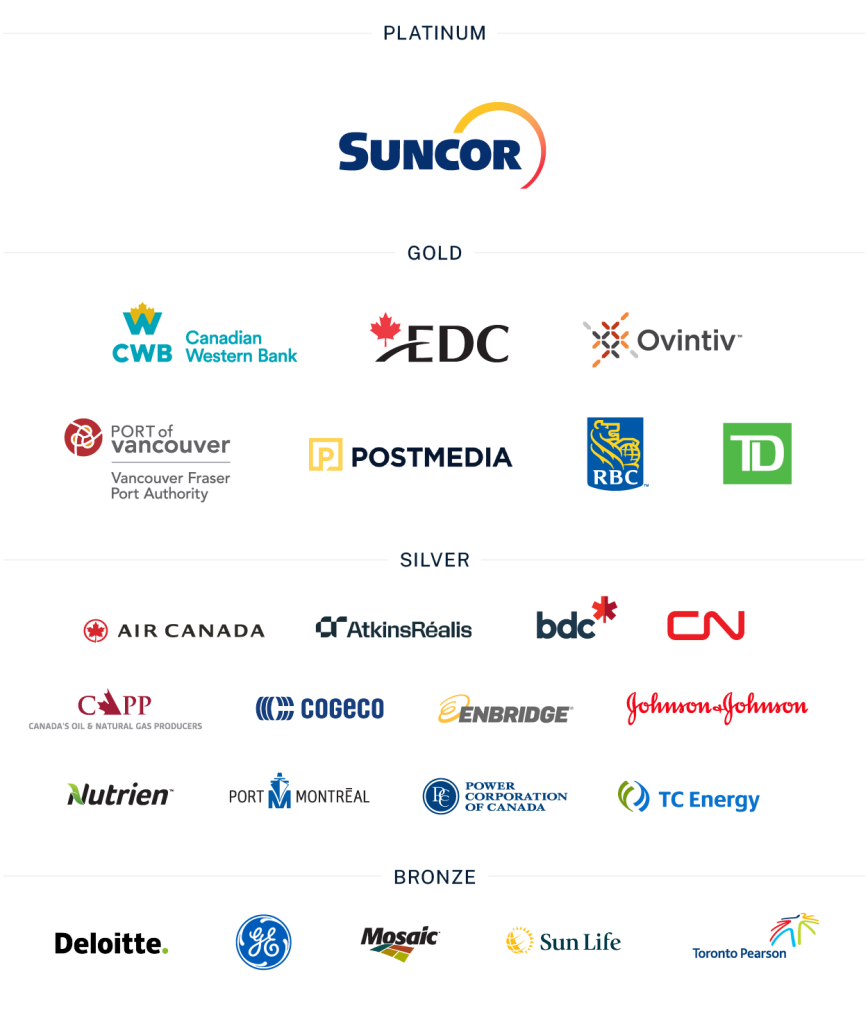
Other Blogs
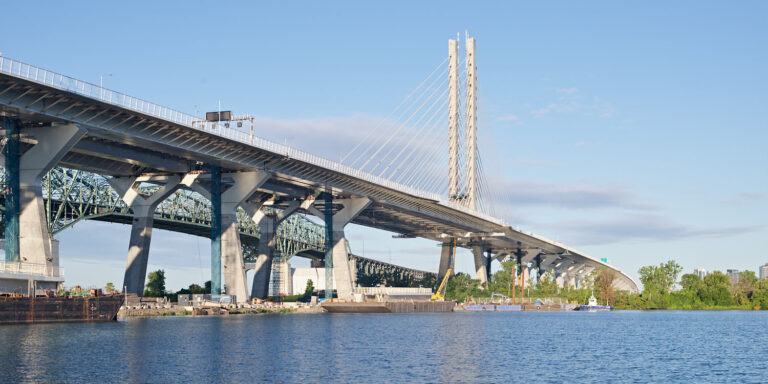
Navigating Net Zero
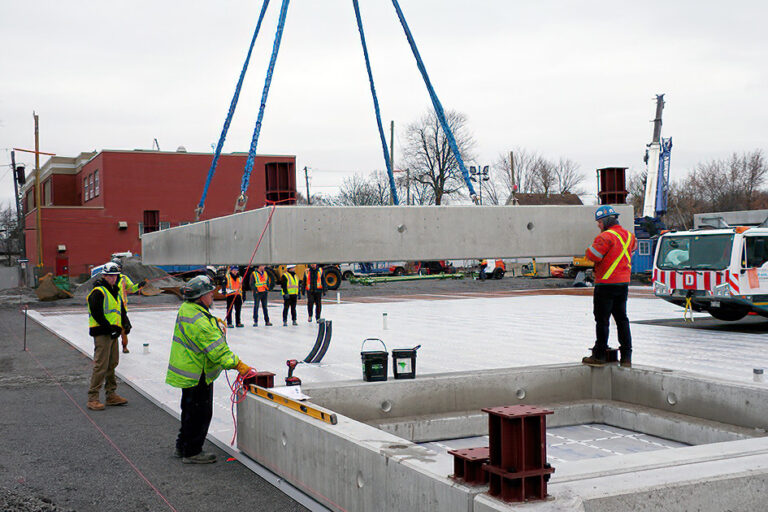
Lodestar Structures: Revolutionizing Community Infrastructure
